Susan Sarandon, the great American actress with a bit of Tuscany in her blood
Our unforgettable chat at the Lucca Film Festival
Susan Sarandon embodies the essence of cinema like few other actresses. Honoured with the Lifetime Achievement Award at last year’s Lucca Film Festival, ‘combative’ Susan is not only one of the most skilled and recognised actresses in world cinema, but also a voice in the field and among the people. And away from the cameras (as we have witnessed), she is light years away from a diva, and reveals her simplicity to the point of disguising herself to walk around the streets of Lucca - her Lucca (you will soon understand why) - to admire the town’s beauty like a normal person.
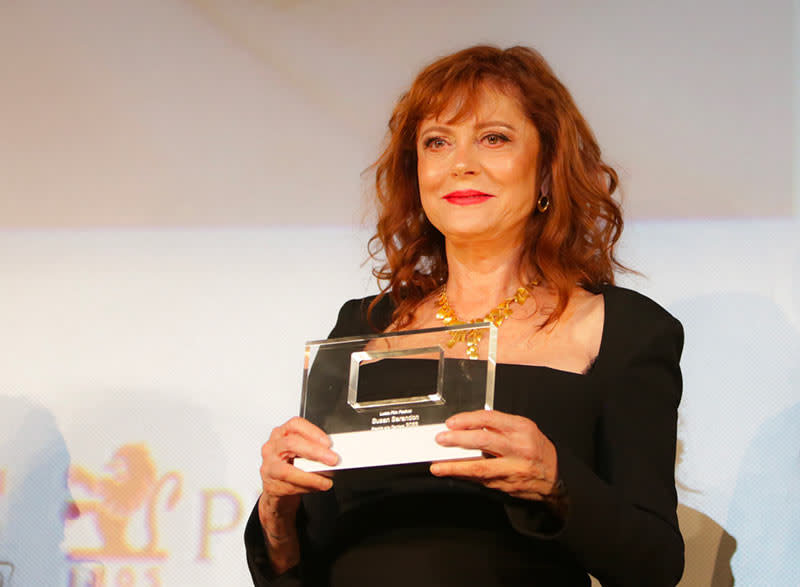 Susan Sarandon receives the Lifetime Achievement Award at last year’s Lucca Film Festival
Susan Sarandon receives the Lifetime Achievement Award at last year’s Lucca Film Festival“I never dreamed of being an actress; I was very shy when I was young. I did some amateur acting with my eight brothers, but mostly I was writing, if anything. The only thing I wanted was to get away from New Jersey and discover the world in New York”, says the Italian-American actress to whom fate reserved a dazzling career in the world of cinema, at the beginning of a meeting with the public in the Church of San Francesco. Susan Sarandon has worked with some of Hollywood’s greatest directors, from the legendary Billy Wilder, Ridley Scott, Louis Malle and Tim Robbins (both of whom were her partners for a time) to Robert Altman, Oliver Stone, Robert Redford and Peter Jackson. She has starred in some of the most successful films of the last forty years, from The Witches of Eastwick (George Miller, 1987), Thelma & Louise (Ridley Scott, 1991) and Dead Man Walking (Tim Robbins, 1995), a film for which she won the 1996 Academy Award for Best Actress, to The Company You Keep (Robert Redford, 2012) and Cloud Atlas (Andy and Lana Wachowsky, 2012) up to her role as the queen of country music in the series Monarch (2022).
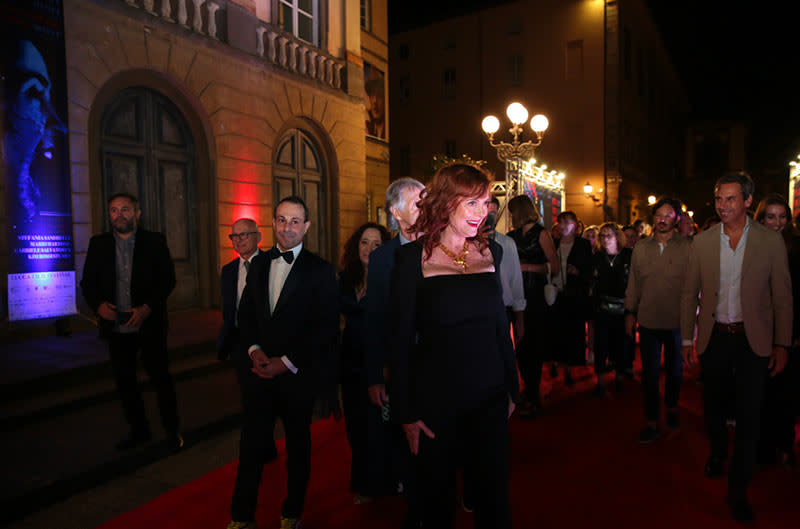 Susan Sarandon and Nicola Borrelli (President of the Lucca FIlm Festival) on the red carpet of Lucca Film Festival 2023
Susan Sarandon and Nicola Borrelli (President of the Lucca FIlm Festival) on the red carpet of Lucca Film Festival 2023As for the mystery of Lucca, it will soon be revealed here. The actress’s great-grandfatherwas Mansueto Rigali, a figurine maker from Loppia, near Coreglia Antelminelli, on the hills overlooking Lucca, who emigrated to the United States in the 19th century and was the father of Anita Rigali, Susan’s maternal grandmother, a beautiful New York dancer and showgirl who died young in mysterious circumstances after giving birth to Leonora Criscione, Sarandon’s mother.
Before reading the interview, browse the entire issue of Florence Made in Tuscany, which has the great actress as its cover story
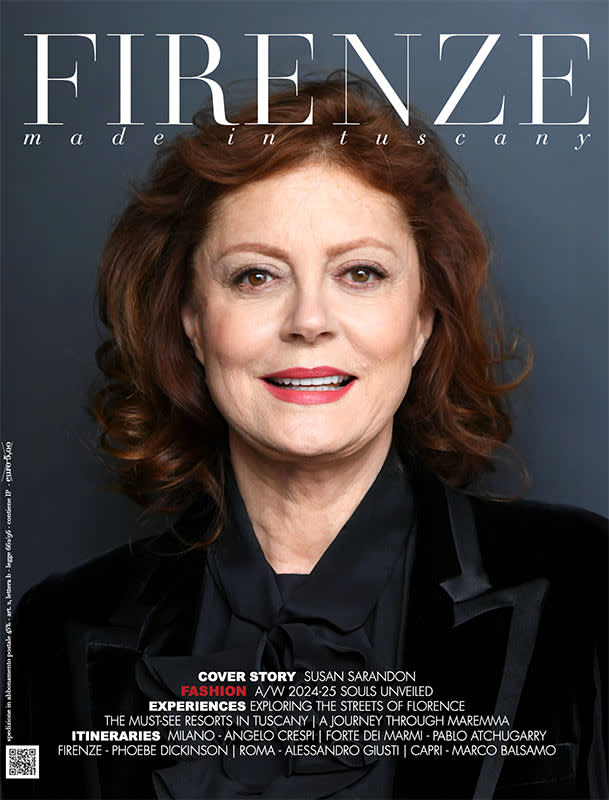 Firenze made in Tuscany n.71
Firenze made in Tuscany n.71What was the first film that moved you?
The first film that really showed me cinema as a vision was Bernardo Bertolucci’s The Conformist. I had never seen anything like it. I don’t think films should tell you what to do, but rather spark something new in how you see the world or how you feel. It’s a very special thing, so you have to be very responsible about the kind of films you choose to make and the messages they convey.
Now that your career is at its peak, what motivates you to continue?
Making films is like going to the Wild West to look for gold; film sets are like tribes. It’s a constant exercise in compassion and empathy. Each role reveals characters who may seem unrelated to you, but in the end you realise otherwise.
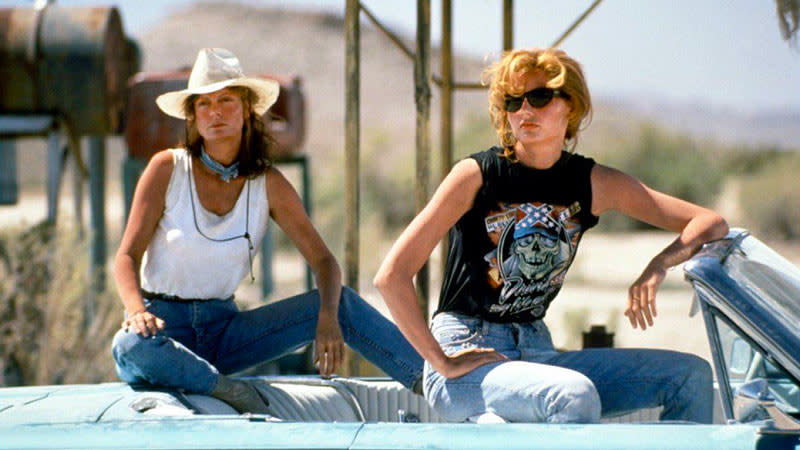 Susan Sarandon and Geena Davis, protagonists of Thelma & Louise
Susan Sarandon and Geena Davis, protagonists of Thelma & Louise Which of your films do you love the most?
Well, that’s like asking me to choose between my children... I have a deep attachment to Dead Man Walking. I discovered the book, I produced the film, and it sparked a debate about the death penalty that hadn’t existed before. I am very proud of that, and I have been very close to Sister Ellen, who has remained in my life. Also Bull Durham, the experience that led to the birth of my children. (it was on the set that she started a relationship with Tim Robbins, ed.).
When you decide whether or not to participate in a film, what guides your decision?
It’s always the stories that make me decide. I’m drawn to stories that illuminate what stirs in the hearts of others; stories that unite us in our common humanity and inspire us to take charge of our own narratives. Reflecting on my career and the films I’ve been involved with, I realise that they all revolve around love in one way or another.
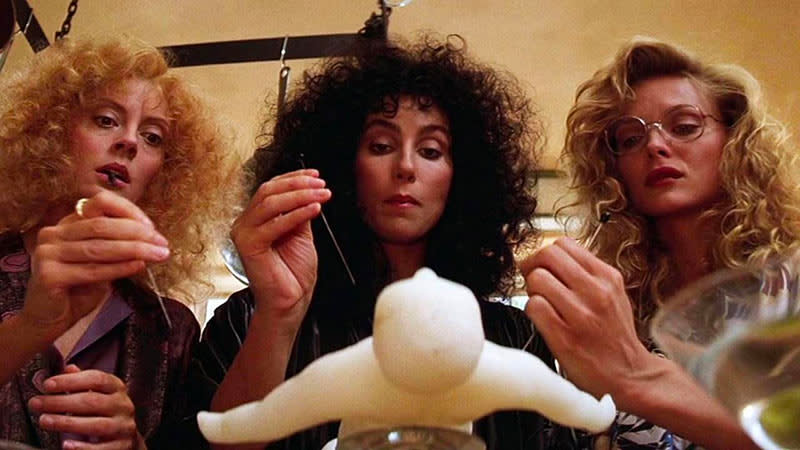 Susan Sarandon, Cher and Michelle Pfeiffer in The Witches of Eastwick
Susan Sarandon, Cher and Michelle Pfeiffer in The Witches of EastwickSpeaking of love, how do you feel when you are surrounded by public’s affection?
I’m always surprised and deeply touched when the public express their warmth towards me. Reading fan mail and hearing what the films I’ve worked in mean to them is incredibly gratifying. It’s reassuring to know that my work in cinema resonates with people. While theatre offers a direct connection with the audience, making a film exposes you to myriad factors - such as editing and music - that make it difficult for you to predict the impact it will have on people. So it’s gratifying to know that a film has meaning for someone.









